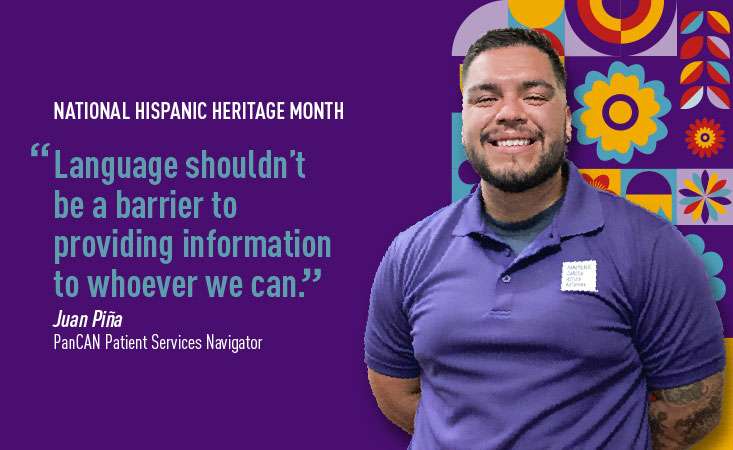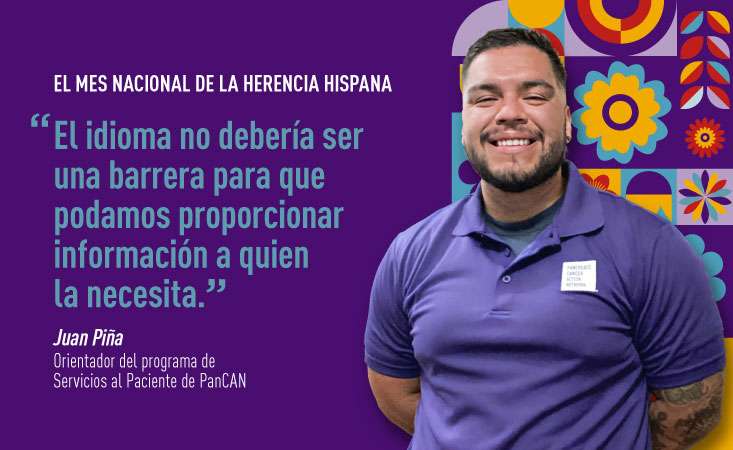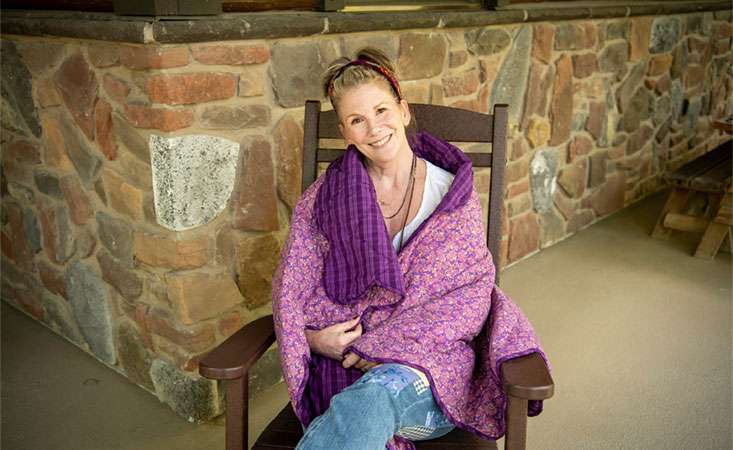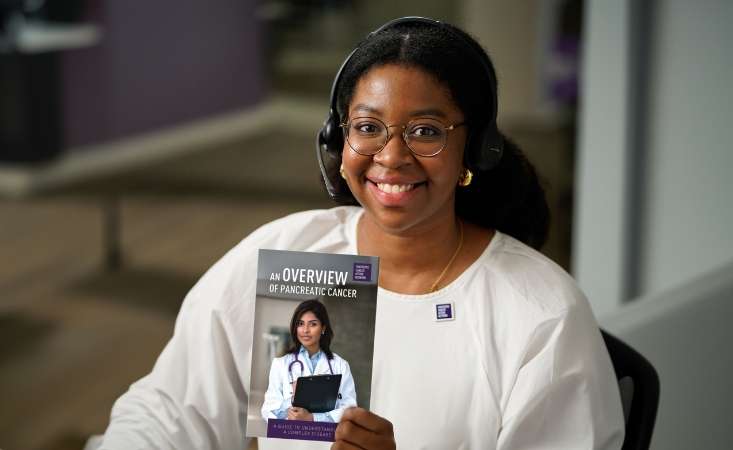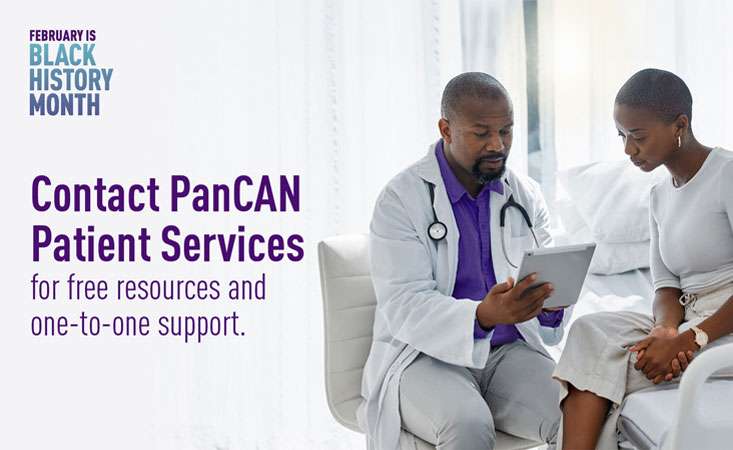
Black Americans are more likely to be diagnosed with pancreatic cancer than any other racial/ethnic group in the United States. And although we have seen improvements in overall survival for pancreatic cancer, the age-adjusted mortality rate from pancreatic cancer for Black Americans is higher than it is for the white population, according to the American Cancer Society.
Although many complex factors contribute to these disparities, the goal is to learn more as well as educate and empower people who face significant barriers to care many others take for granted. PanCAN is a leader in this fight: We are committed to making equitable progress in the fight against pancreatic cancer. This means answering your questions, raising awareness of symptoms and risk factors, sharing resources and funding research to improve outcomes for everyone impacted by the disease.
Here are four ways to take action:
1. Understand your risk and talk to your doctor.
- If you have a parent, sibling or child who’s been diagnosed with pancreatic cancer, talk to your doctor about your own risk and options to learn more, including genetic counseling.
- For people older than 50 who have been diagnosed with new-onset diabetes (a recent diagnosis made in the past three years), a discussion about pancreatic cancer screening is also important, because diabetes may be a symptom of pancreatic cancer.
- There are also risk factors that you can work to change that may contribute to an individual’s likelihood of developing pancreatic cancer, such as smoking, obesity and an unhealthy diet.
2. Recognize the symptoms and be your own best advocate.
Research has shown that Black Americans are more likely to be diagnosed at a later stage than other patients facing the disease. There is currently no standard early detection test for pancreatic cancer, so recognizing the symptoms and communicating early and often with your doctor about changes in your body is the best way to be an advocate for your health.
Symptoms of the disease include:
- Pain – usually in the back or abdomen
- Unexplained weight loss
- Jaundice (yellowing of the skin or eyes)
- Loss of appetite
- Nausea
- Change in stool
- Pancreatitis
- New-onset diabetes
3. If you’ve been diagnosed with pancreatic cancer, don’t hesitate to get a second opinion on treatment options and next steps.
A second opinion provides a different perspective, serves as a quality check and verifies that all available treatment options have been offered and explained. This is important for all people facing pancreatic cancer, but especially for members of the Black community because they are more likely to be diagnosed at a later stage, which limits treatment options. Also, even when diagnosed early, Black Americans are less likely to undergo surgery. Seeking a second opinion is critical to feel empowered and prepared to make informed decisions.
4. Consider clinical trials and contact PanCAN Patient Services to help find options.
Clinical trials can give patients early access to leading-edge treatments that can lead to improved treatment options and better outcomes. Unfortunately, those who enroll in clinical trials do not always represent the population at large. Despite comprising roughly 14% of the U.S. population, research shows that Black Americans only account for about 8% of oncology clinical trial participants. Increased diversity in clinical trials can help researchers find better ways to fight diseases that disproportionately impact certain populations. PanCAN can help. Contact PanCAN Patient Services for a personalized list of clinical trials that match what you need.







